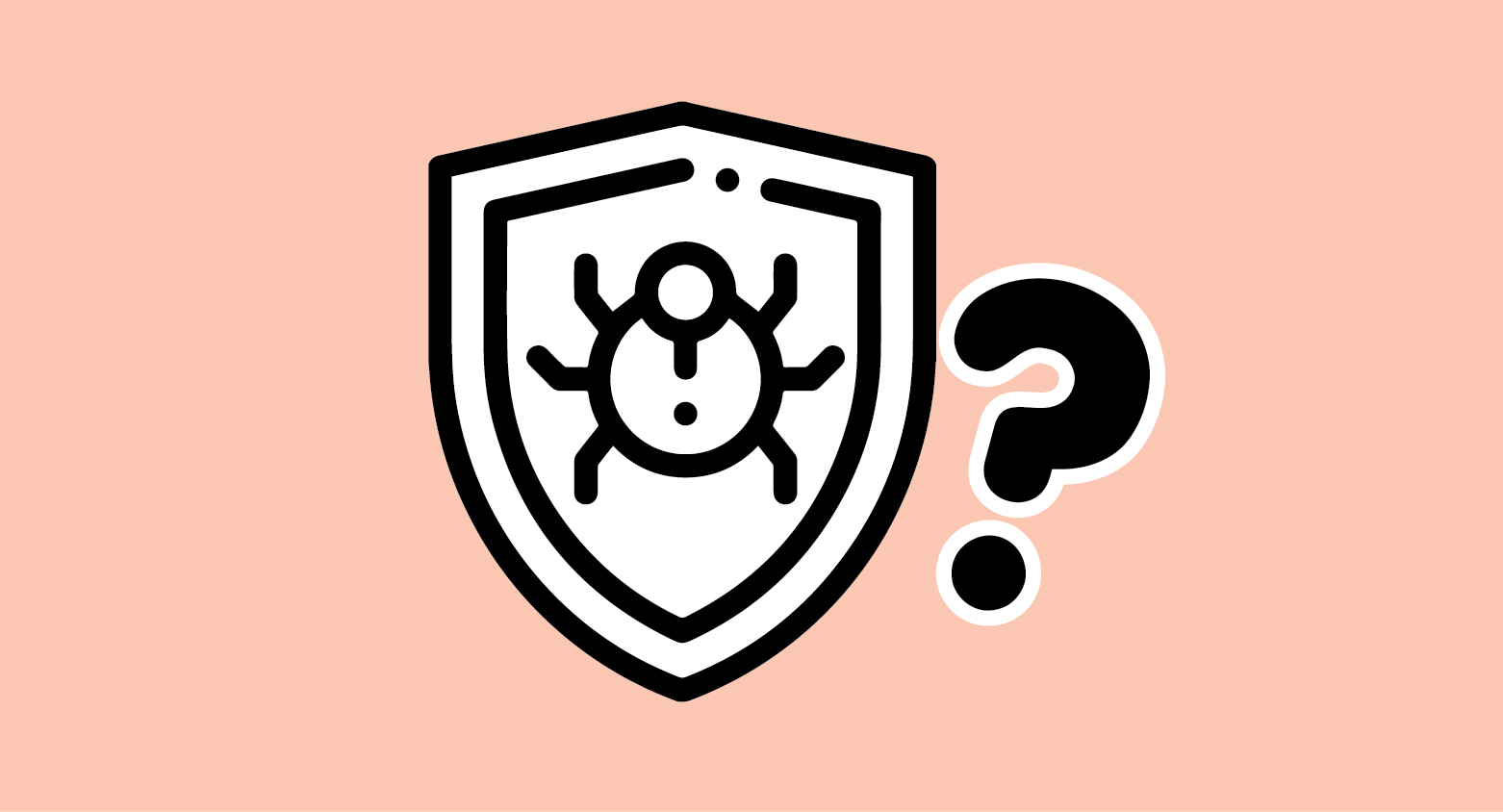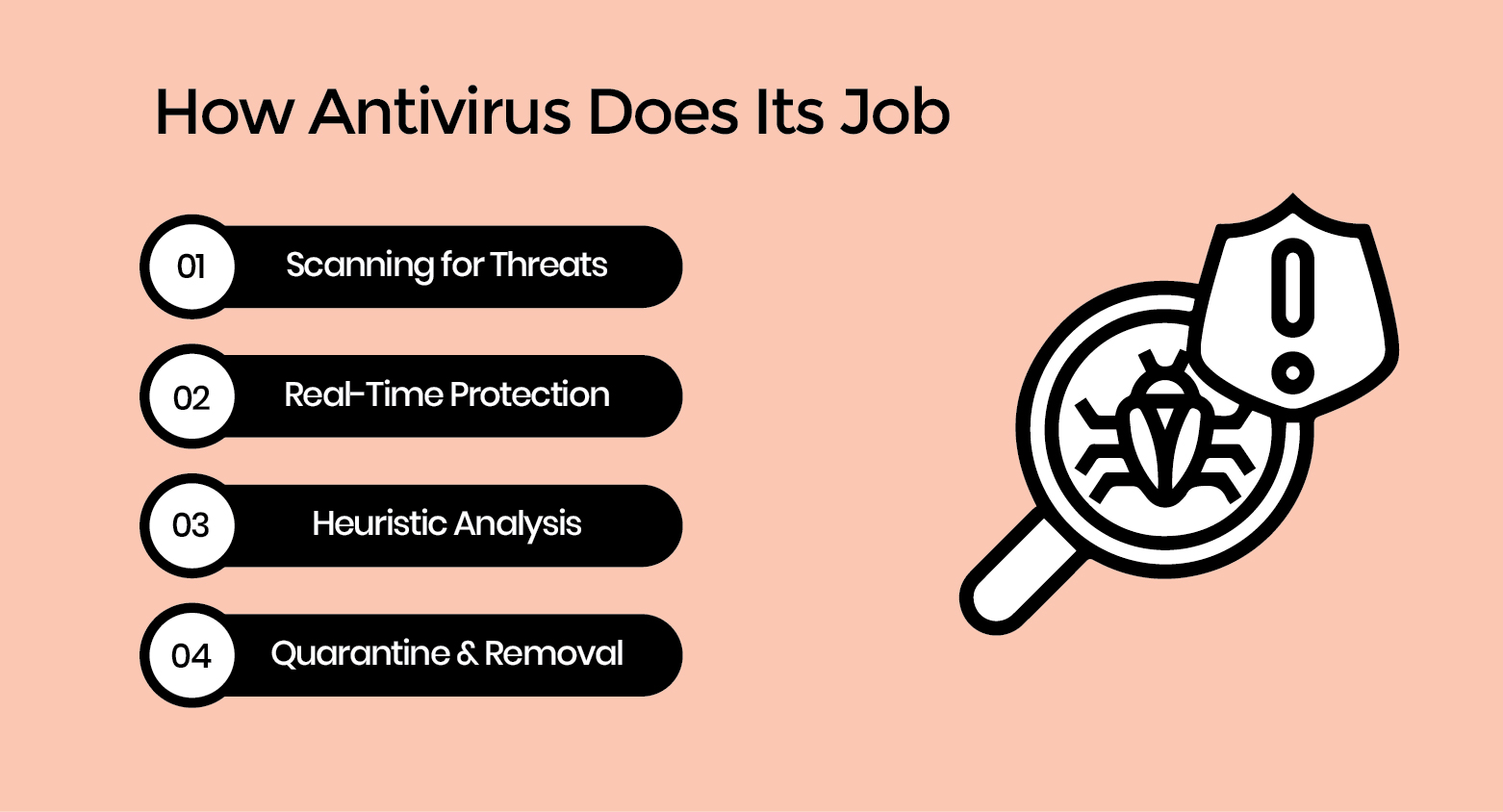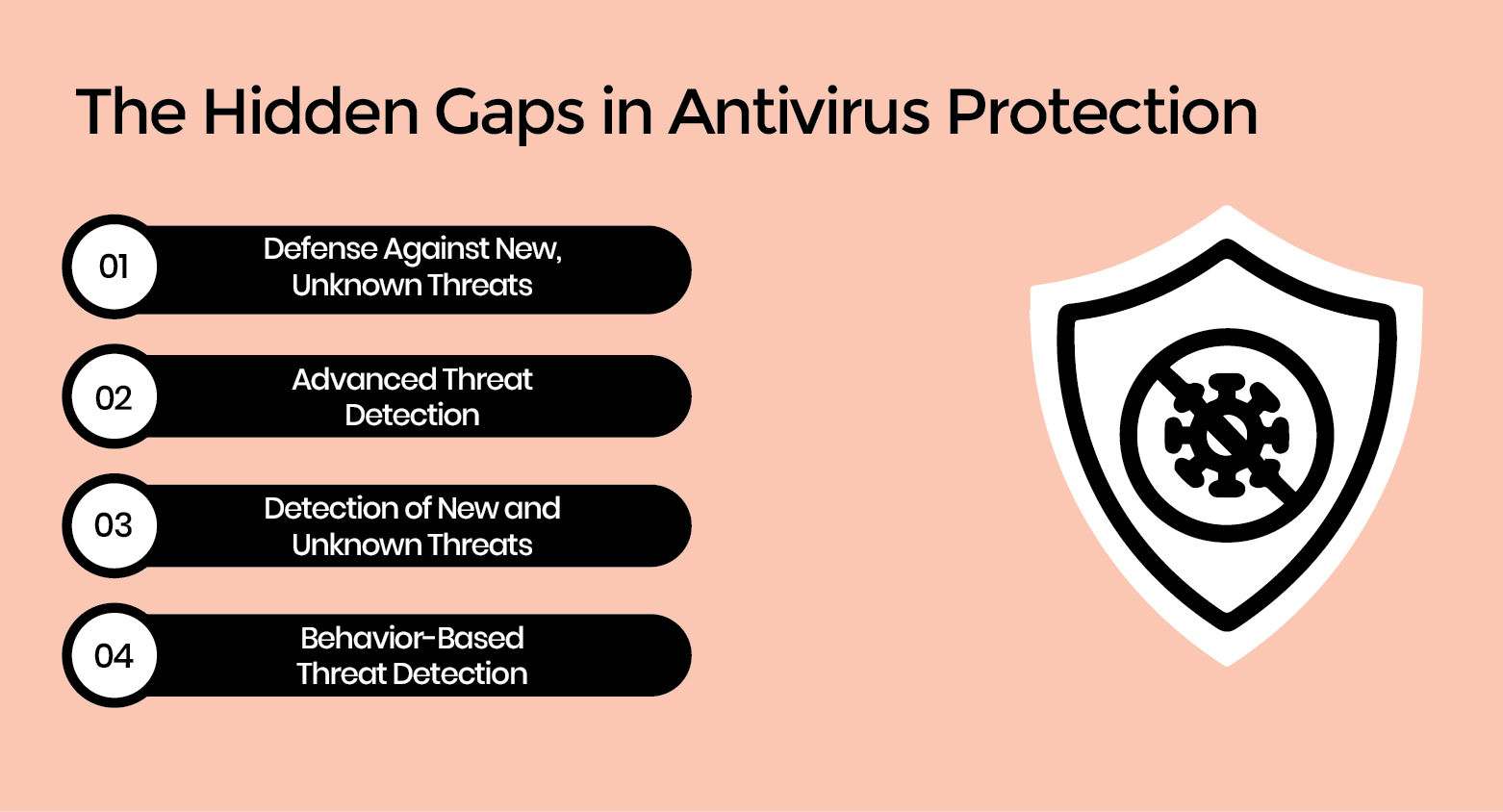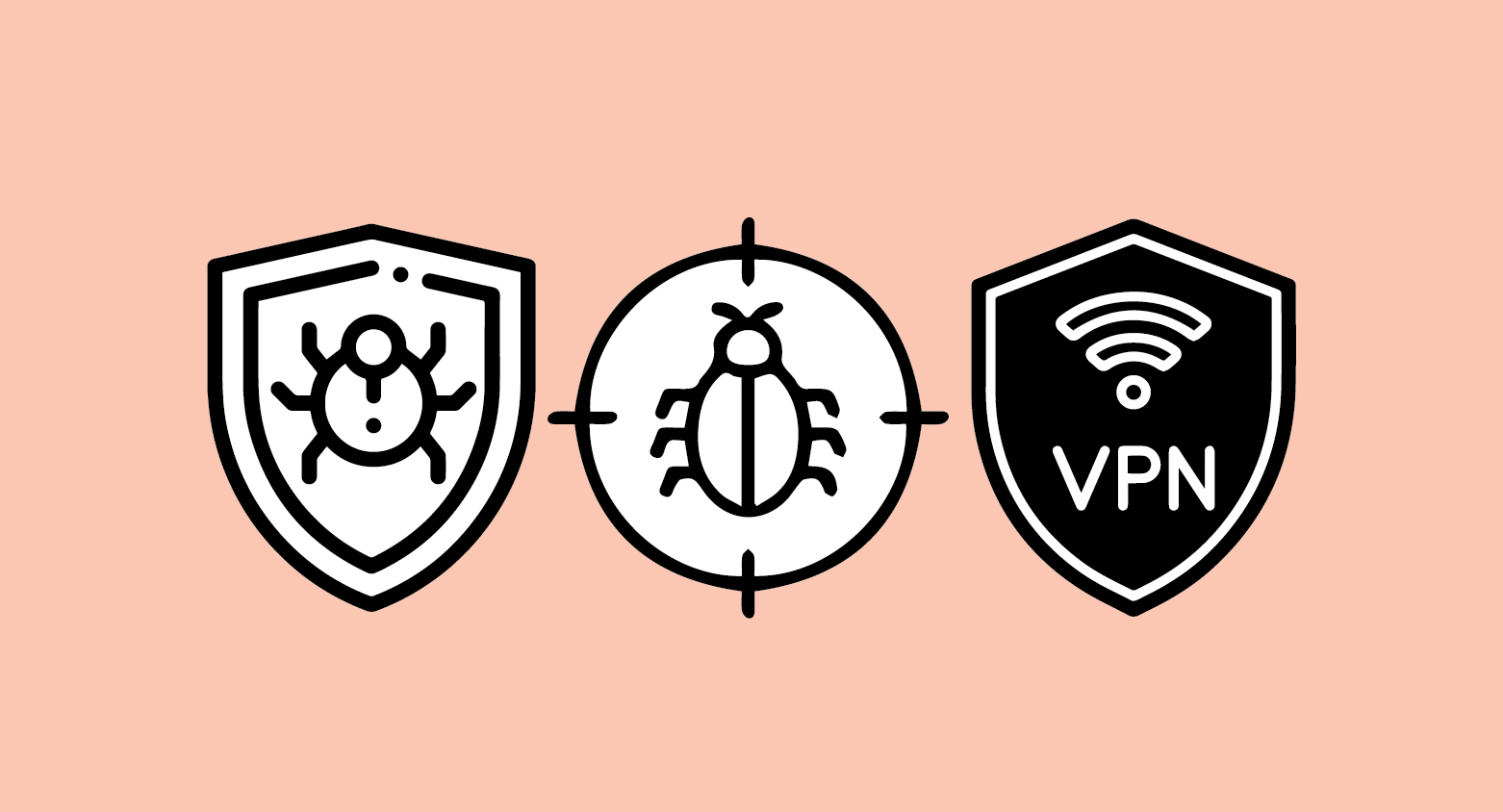Antivirus is one of the essential tools that protects your system against complex cyberattacks. There are various kinds of antivirus software, each claiming to be the best in its domain. No doubt, much of the protection is provided by antivirus software, but to some extent, it fall short of keeping the system secure against external threats.
This blog will provide a detailed discussion of the working of an antivirus, its key features, and future predictions.
What is an Antivirus?

Antivirus software plays a key role in protecting your system against malware attacks. It scans files arriving in your system, and ensures they are safe. Antivirus protection ensures the protection of users' personal information, data, and sensitive files.
Benefits of AntiVirus
An antivirus app acts as a first line of defence against external malware threats. Some of its unique benefits are explained below:
- Various antivirus malware software block pop-ups on your screen; these pop-ups are not only annoying but also sometimes the source of malware and viruses.
- Modern antivirus malware software ensures a safe browsing experience by blocking dangerous websites.
- Antivirus software stops unused programs from running in the background, which prevents your system from slowing down.
Behind the Screen: How Antivirus Does Its Job
antivirus works by following a simple model:

-
Scanning for Threats
Antivirus scans every file reaching the user's system and spots the suspected one.
-
Real-Time Protection
Antivirus offers real-time protection analysis. It does so by analysing the user’s actions in real-time. If a user accesses a risky file, it warns users and immediately blocks it.
-
Heuristic Analysis
This is the most significant function of an antivirus. It does this by finding something new that is not in the list. It analyses how the file behaves. If it acts like a virus or spies on you, it gets flagged.
-
Quarantine & Removal
The final step involves either deleting or quarantining suspected threats, preventing them from causing further damage.
Other ways to protect your network:
-
Install a firewall to protect the system
-
Deploy event management
-
Avoid suspicious links
-
Use an antivirus with VPN features
The Hidden Gaps in Antivirus Protection
Here are the most common factors where an antivirus protection app is inefficient:

1. Defence Against New, Unknown Threats
Antivirus software often fails to detect new malicious attacks. For instance, if a virus is new and not in the database, antivirus programs remain ineffective in controlling it.
“Back in 2014, Symantec’s Senior Vice President stated that antiviruses are less than 50% effective against any cyberattacks due to the increasing complexity in cybersecurity.”
2. Advanced Threat Detection
Some antivirus software lacks the capability of detecting sophisticated attacks like malware and toolkits, which keep users' systems vulnerable to external threats. Also, not all antivirus software can protect the system against ransomware attacks.
3. Detection of New and Unknown Threats
Traditional antivirus protection app relies on signatures of existing viruses to detect threats. When a new or unknown virus emerges, most antivirus solutions don't recognize it immediately. This time lag leaves systems vulnerable to new attacks. Sophisticated threats like zero-day exploits easily bypass outmoded detection methods.
4. Behaviour-Based Threat Detection
Antivirus primarily deals with static analysis rather than dynamic behaviour. Malware that appears harmless at first may escape detection. By not checking real-time activities, threats may be triggered upon passing through the antivirus. This decreases the tool's capability of offering proactive defence.
Do you know that by using Best Ad Blockers For Edge, you can prevent the intrusion of unnecessary ads, which often hack your data.
Antivirus vs Anti-malware and VPN: How Different from Others
This section explains the aspects of VPN, antivirus and anti-malware, facilitating users to choose the one that fits their needs.

|
Feature |
Anti virus |
Anti malware |
VPN |
|---|---|---|---|
|
Main purpose |
Antivirus Internet Protection safeguards against viruses and basic malware |
Detects and removes all types of malware |
Encrypt internet connection and hide IP address |
|
Protection type |
Against viruses, worms, and basic threats |
Against ransomware, spyware, trojans, etc |
Against trackers, hackers |
|
Internet type |
Yes |
Yes |
No(focuses on privacy) |
|
Internet privacy |
No |
No |
Yes |
|
Example tools |
Norton, Avast, McAfee |
Malwarebytes, HitmanPro |
NordVPN, ExpressVPN, Surfshark |
Best Antivirus App
There are a number of antivirus apps. Users need to thoroughly assess all kinds of antivirus apps and select the one that best meets their needs. Some of the best antivirus software names are listed below:
- Norton
- McAfee
- Bitdefender

Bitdefender
Stop malware, phishing, and data breaches before they start — and manage all your passwords safely in one secure place.
- Kaspersky
- Avast
- AVG
Future of Antivirus Software

Considering the anomalies of antivirus software, it is perceived that the trend is shifting from simple virus detection to comprehensive cybersecurity platforms. Traditional antivirus alone blocks only about 30–50% of advanced threats today, prompting a move toward AI-driven systems and behavior-based analysis.
According to GlobeNewsWire, global cybercrime costs are projected to reach $10.5 trillion annually by 2025, pushing companies to invest in smarter solutions like Extended Detection and Response and cloud-based antivirus.
In short, the future of antivirus lies not just in catching viruses but in building intelligent shields against rapidly evolving cyber threats.
As evolving cyberattacks are difficult to predict, using the best AI security tools along with advanced technology is essential for averting evolving cybersecurity threats.
FAQs
What is an Antivirus Cleaner?
An antivirus cleaner is a tool that specifically removes malware infections from a device after they have already occurred.
How does Antivirus Software work?
An antivirus cleaner works by scanning infected files and permanently removing or repairing them to restore system health.
What is an Antivirus Subscription?
An antivirus subscription is a paid service that provides continuous virus protection, regular updates, and advanced security features for a set period.
Do Antiviruses Work as a VPN?
No, a VPN does not work as an antivirus. However, Free and paid VPNs are solely responsible for protecting your online privacy by encrypting your internet connection, while an antivirus protects your device from malware and viruses. Hence, using best free antiviruses in UK are nice choice against various threats.
In conclusion, antivirus software offers numerous benefits to users, from scanning files to eliminating suspected ones. But the growing complexities in the cyber landscape have indeed simple antivirus software inefficient in coping with complex issues. Pairing with best anti phishing tools and services helps countering various types of phishing attacks.
Organisations are using other methods too for keeping their system safe against malicious attacks. In line with evolving challenges, it is safe to say that using an antivirus with a password manager can effectively avert the complex cybersecurity threats.
Stay tuned to Virtual Code Vault for more information!

